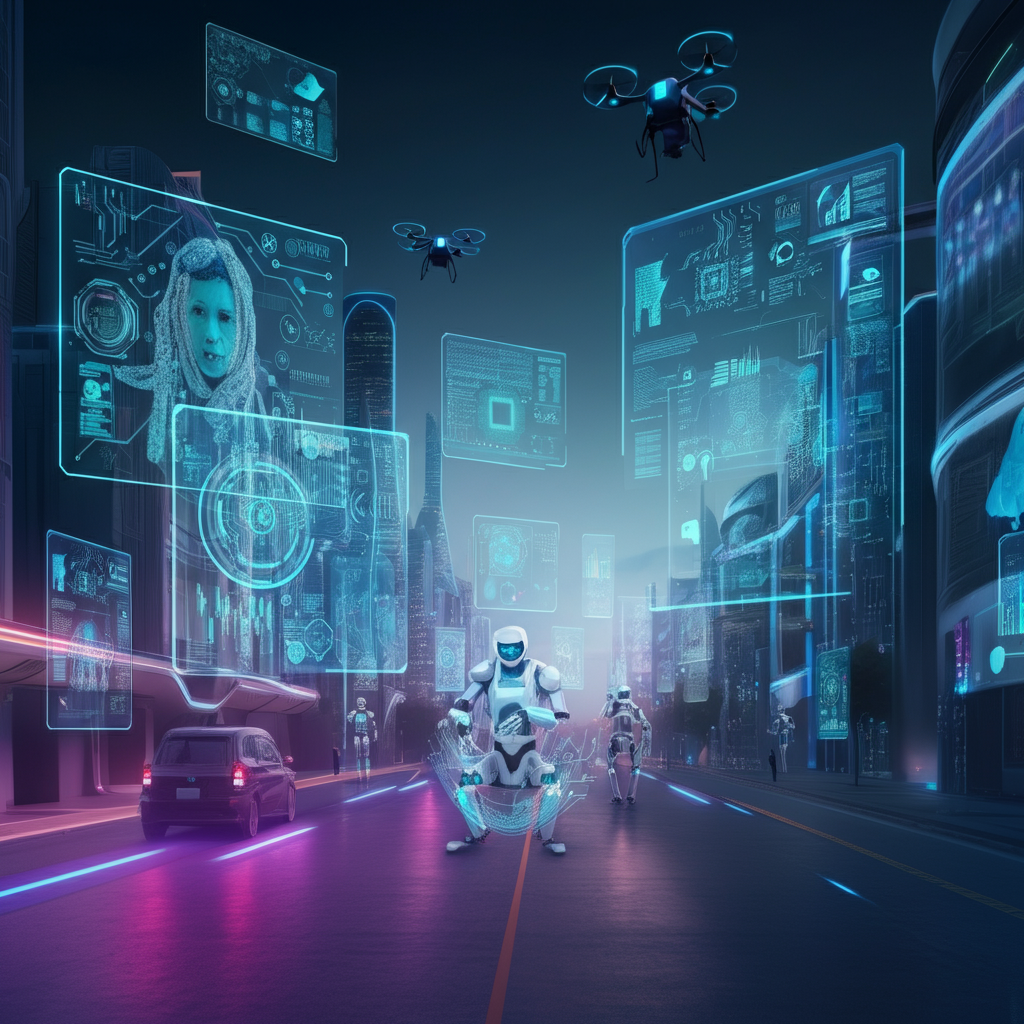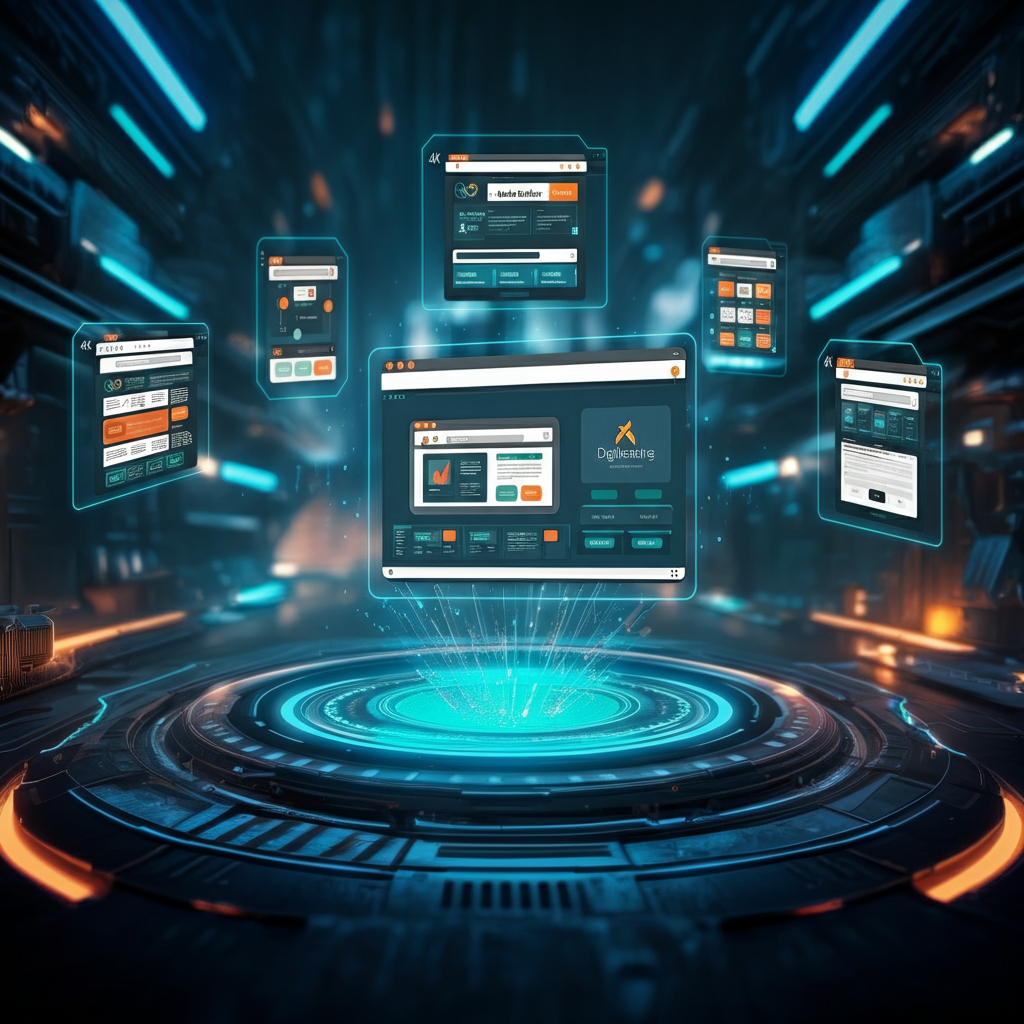The Latest in AI: How It’s Changing Industries
Artificial intelligence (AI) is no longer a concept reserved for futuristic movies or tech startups. It’s happening now, reshaping industries, transforming workflows, and redefining what’s possible across various sectors. By 2025, AI is projected to become even more deeply entrenched in the way businesses operate, with global spending on AI systems expected to exceed $300 billion.
But what does that mean for industries today? And what can we expect just a few years from now? This blog explores current AI trends that are revolutionizing industries and forecasts how AI will continue to evolve by 2025.
Current AI Trends Across Industries
AI has established itself as a pivotal driver of innovation, but its applications aren’t uniform across all industries. Here, we’ll take a deep look at how it is currently transforming key sectors.
1. Healthcare
AI’s role in healthcare has rapidly accelerated, particularly in diagnostics, personalized treatment plans, and administrative support.
- Diagnostics: Tools like IBM Watson Health provide faster and more accurate diagnoses by analyzing data beyond what the human eye can detect. Companies like Aidoc are using AI to identify abnormalities in medical imaging to help radiologists reduce turnaround times.
- Drug Development: AI is dramatically reducing the time and cost of drug discovery. For example, AlphaFold, developed by DeepMind, solves protein-structure prediction problems that typically take scientists years to figure out.
- Telehealth Improvements: AI chatbots and voice assistants bridge the gap between patients and professionals by providing round-the-clock preliminary consultations.
2. Retail and E-Commerce
Some retail brands owe much of their comeback stories to intelligent algorithms that elevate customer experiences and boost efficiency.
- Personalized Shopping: Platforms like Amazon and Shopify have integrated AI into their recommendation engines to provide hyper-customized purchase suggestions based on user preferences and purchasing behavior.
- Inventory Optimization: AI tools predict demand trends so retailers can efficiently manage stock. Walmart notably leverages AI to streamline its supply chain management.
- Conversational AI in Customer Service: Chatbots like Zendesk and Drift are becoming the frontline representatives for customer inquiries, mimicking real-life customer support.
3. Finance
Banks and financial institutions are some of the biggest investors in AI technology, leveraging it to reduce risks and streamline processes.
- Fraud Detection: AI systems analyze vast amounts of transactional data to identify patterns and flag unusual behavior that may indicate fraudulent activity. Companies like PayPal are already employing AI to secure transactions.
- Algorithmic Trading: AI optimizes trading strategies by processing real-time market data at unprecedented speeds. Hedge funds like Renaissance Technologies credit their success to such AI-driven systems.
- Credit Scoring & Decisioning: AI helps financial institutions evaluate creditworthiness with greater accuracy, improving lending decisions.
4. Manufacturing and Supply Chain
The industrial sector has seen leaps in productivity and safety with the help of AI-powered systems.
- Predictive Maintenance: AI systems, like those offered by Predikto, monitor equipment performance to predict and prevent failures, minimizing costly downtime.
- Robotics: AI-driven robots are not only running repetitive, labor-intensive processes but are also collaborating with humans for more efficient workflows.
- Demand Planning: By forecasting trends in consumer demand, AI helps producers optimize inventory and fulfillment strategies.
5. Education
AI is transforming how learning is delivered, making education more accessible and personalized.
- Customized Learning Platforms: Tools like Duolingo and Khan Academy use AI to adjust lessons based on users’ strengths and weaknesses.
- AI-Tutoring Assistants: Virtual tutors like Gradescope and Carnegie Learning provide students with immediate feedback and assistance.
- Administrative Automation: AI is being used to grade assignments and even detect plagiarism, saving educators valuable time.
Artificial Intelligence in 2025
By 2025, we’ll see AI mature vastly in scale and sophistication, further solidifying its role as an essential tool across industries. Here are some predictions for what lies ahead.
1. Integration of AI with 5G and IoT
The widespread adoption of 5G by 2025 will give AI the infrastructure it needs to process and transmit data much faster. Internet of Things (IoT) devices, enhanced with AI, will enable seamless interconnectivity between physical and digital environments. Think of fully automated smart cities with AI managing energy systems, traffic, and public safety.
2. AI Taking Center Stage in Sustainability
AI will play a leading role in combating climate change by optimizing resources and managing renewable energy systems. Predictive models will improve disaster preparedness and response, while countries will use AI to monitor and lower carbon emissions on a global scale.
3. Widespread Use of Generative AI
Generative AI tools like DALL-E and Jasper will extend beyond marketing and design to become indispensable tools in areas like architecture, gaming, and product prototyping. Companies will rely on generative AI to create products and solutions nearly from scratch.
4. Hyper-Personalization in Consumer Experiences
As AI perfects its ability to analyze human behavior, businesses will tailor customer experiences more comprehensively. By combining biometric data, context awareness, and predictive analytics, companies will deliver experiences that feel almost psychic in their accuracy.
5. Ethical Regulations Becoming the Norm
AI governance will take shape as more countries implement strict ethical regulations to ensure fairness, transparency, and responsible AI use. Companies won’t just adopt AI for efficiency but will do so while adhering to globally accepted codes of conduct.
How to Leverage AI for Your Business Today
If you’re a professional or organization looking to integrate AI into your operations, start small and scale wisely. Here are some actionable steps to get started:
- Identify Key Pain Points: Start by pinpointing specific challenges in your business that AI can solve, whether it’s automating mundane tasks or improving customer experiences.
- Explore Accessible Tools: There are countless AI tools available today, ranging from free-to-use services to enterprise platforms. Experiment with user-friendly tools like Jasper for writing or Tableau for data visualization.
- Focus on Training: Implement training programs for your workforce to improve AI literacy. Your workforce must know how to utilize AI to achieve strategic goals effectively.
- Adopt Gradually: Begin with pilot programs to test AI solutions in selected departments before deploying them organization-wide.
Stay Ahead with AI
AI isn’t just another trend; it’s a game-changing technology that has redefined how businesses operate. Industries across the globe are leveraging AI to save time, reduce costs, and improve outcomes. By 2025, those who successfully integrate AI into their strategies will hold a significant competitive advantage.
Don’t wait to learn how AI can benefit your industry. Curious to see AI in action? Sign up and try Jasper for free today to explore one of the most innovative AI writing assistants on the market.
Leave a comment
Your email address will not be published. Required fields are marked *




